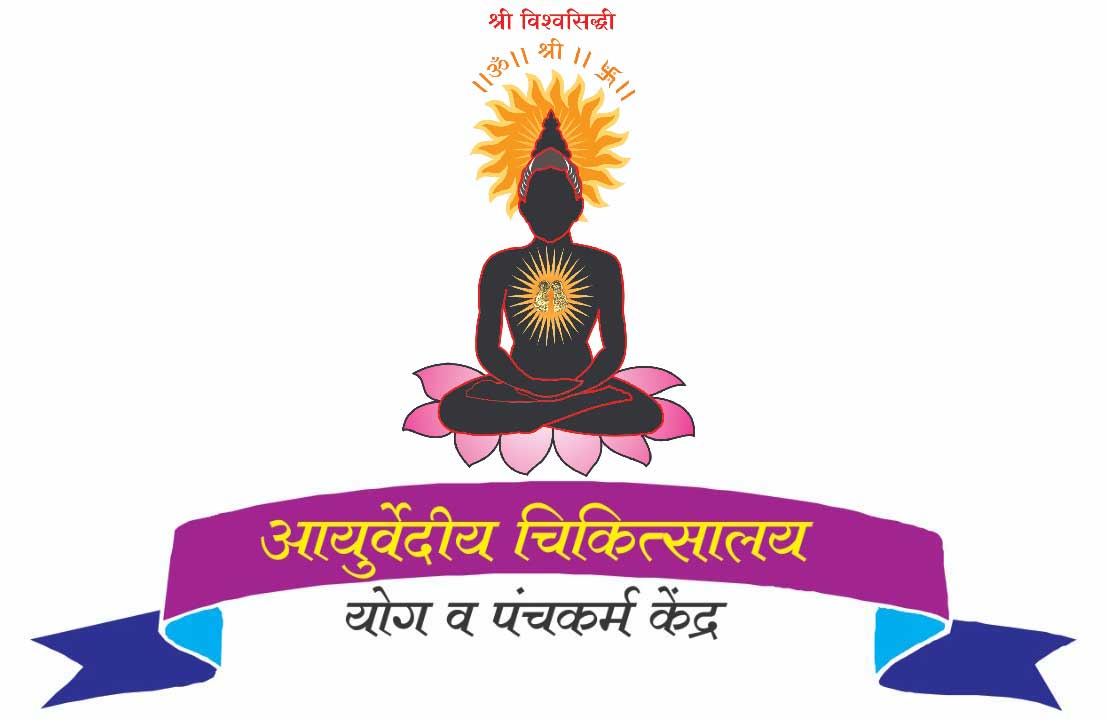Introduction
Psoriasis is a chronic skin condition characterized by the rapid growth of skin cells, resulting in scaly patches, inflammation, and discomfort. While many people are familiar with its appearance, the range of symptoms can vary significantly from one person to another. Understanding these symptoms is essential for early detection and effective treatment. Vishwasiddhi Ayurveda & Panchkarma Centre, located in Ahmednagar and Pune, Maharashtra, specializes in holistic management of psoriasis using Ayurveda and Panchakarma. Led by Dr. Pramod Palve, an experienced practitioner with over 15 years of expertise, the center offers comprehensive care for psoriasis patients.
In this article, we will explore the top 10 symptoms of psoriasis, providing insights into how these symptoms manifest and how they can be effectively managed through Ayurvedic treatments.

1. Red Patches of Inflamed Skin
One of the most common symptoms of psoriasis is the appearance of red patches on the skin. These patches are often inflamed and can be found on various parts of the body, including the elbows, knees, scalp, and lower back. The severity of the redness can vary, depending on the type and stage of psoriasis. At Vishwasiddhi Ayurveda & Panchkarma Centre, personalized Ayurvedic treatment plans aim to reduce inflammation and promote skin healing.
2. Silvery-White Scales on the Skin
Another hallmark symptom of psoriasis is the formation of silvery-white scales on top of the red patches. These scales are a result of the rapid buildup of dead skin cells. They often cause itching and discomfort. Through Panchakarma treatments like Abhyanga (oil massage) and Virechana (detoxification), Vishwasiddhi Ayurveda & Panchkarma Centre helps in reducing the scaling and promoting healthier skin.
3. Dry, Cracked Skin That May Bleed
Psoriasis often leads to extremely dry skin, which can crack and bleed. This not only causes discomfort but also increases the risk of infections. Ayurvedic treatments emphasize the use of herbal moisturizers and oils that keep the skin hydrated while promoting natural healing.
4. Itching and Burning Sensations
The itching and burning sensations associated with psoriasis can range from mild to severe. In some cases, the discomfort can be intense enough to interfere with daily activities. At Vishwasiddhi Ayurveda & Panchkarma Centre, therapies like Shirodhara (continuous pouring of herbal oils on the forehead) and Takradhara (medicated buttermilk therapy) are used to soothe the skin and reduce irritation.
5. Thickened, Ridged Nails (Nail Psoriasis)
Nail psoriasis is a specific form of psoriasis that affects the fingernails and toenails. It can cause nails to become thickened, discolored, and ridged. In more severe cases, the nails may crumble or detach from the nail bed. Ayurvedic treatment focuses on improving nail health through dietary adjustments, herbal remedies, and detoxification procedures.
6. Joint Pain and Stiffness (Psoriatic Arthritis)
For some individuals, psoriasis can lead to a form of arthritis known as psoriatic arthritis. This condition causes joint pain, stiffness, and swelling, particularly in the fingers, toes, and lower back. Early diagnosis and treatment are crucial to prevent joint damage. Panchakarma therapies, combined with Ayurvedic medications, are effective in managing joint pain and reducing inflammation.
7. Small Scaling Spots (Guttate Psoriasis)
Guttate psoriasis is characterized by small, drop-shaped spots of scaling on the skin. This type of psoriasis often appears suddenly and is usually triggered by infections like strep throat. At Vishwasiddhi Ayurveda & Panchkarma Centre, the focus is on balancing the doshas (Vata, Pitta, Kapha) and strengthening the immune system to prevent future flare-ups.
8. Swollen and Painful Joints
In addition to skin symptoms, psoriasis can also cause swelling and pain in the joints, even if psoriatic arthritis is not present. This symptom is particularly concerning as it can limit mobility and affect quality of life. Ayurvedic treatments like Basti (medicated enema) and internal herbal medications help reduce joint inflammation and improve mobility.
9. Flare-Ups Triggered by Stress or Weather Changes
Many psoriasis patients experience flare-ups that are triggered by stress, weather changes, or infections. These flare-ups can be sudden and severe. Ayurvedic principles emphasize the importance of stress management, healthy lifestyle choices, and seasonal routines to minimize the risk of flare-ups.
10. Emotional and Psychological Distress
Living with psoriasis can take a toll on mental health. The visible nature of the condition often leads to self-consciousness, anxiety, and depression. Vishwasiddhi Ayurveda & Panchkarma Centre offers holistic care that addresses both the physical and emotional aspects of psoriasis. Meditation, counseling, and Ayurvedic therapies that calm the mind are incorporated into the treatment plan.
Managing Psoriasis Holistically with Ayurveda and Panchakarma
Ayurveda offers a holistic approach to managing psoriasis, focusing on balancing the body’s doshas, detoxification, and improving overall health. Dr. Pramod Palve, with more than 15 years of experience, leads the team at Vishwasiddhi Ayurveda & Panchkarma Centre in Ahmednagar and Pune, offering customized treatment plans for each patient.
Panchakarma therapies are integral in treating psoriasis. These therapies cleanse the body, remove toxins, and rejuvenate the skin. Herbal remedies, dietary modifications, and stress management techniques work together to control symptoms and prevent flare-ups.
FAQs
- What are the early signs of psoriasis?
- Early signs of psoriasis include red patches on the skin, silvery scales, and itching. If you notice these symptoms, it’s essential to consult a specialist for an accurate diagnosis.
- How can Ayurveda help in managing psoriasis symptoms?
- Ayurveda focuses on treating the root cause by balancing the body’s doshas, detoxifying the body, and promoting natural healing. Herbal remedies, dietary changes, and Panchakarma therapies are effective in managing symptoms.
- What triggers psoriasis flare-ups?
- Common triggers include stress, infections, weather changes, and skin injuries. Maintaining a balanced lifestyle, managing stress, and following Ayurvedic routines can help prevent flare-ups.
- Is Panchakarma effective for psoriasis?
- Yes, Panchakarma is highly effective for psoriasis as it detoxifies the body, reduces inflammation, and improves skin health. Personalized Panchakarma treatments at Vishwasiddhi Ayurveda & Panchkarma Centre can offer significant relief.
By raising awareness of the symptoms and holistic treatment options available, more people can benefit from early diagnosis and effective management of psoriasis.
